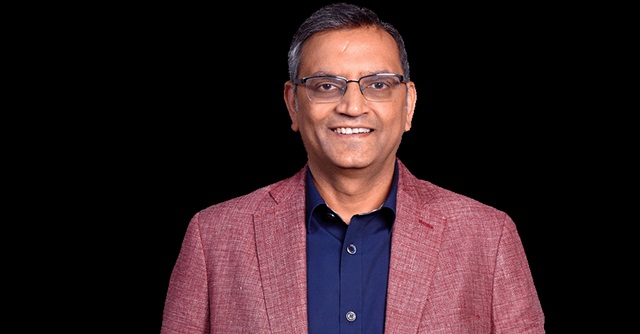
AI will eliminate basic jobs, requiring workers to upskill to strategic roles: Riveron CTIO


Riveron, an American business advisory firm specialising in accounting, finance, technology, and operations, acquired Yantra, an Indo-US cross-border management consulting firm that helps organisations drive business transformation, last July. In a conversation with TechCircle, Vikram Bhandari, founder of Yantra and now CTIO of Riveron, discussed key trends shaping business transformation, the impact of emerging technologies such as Artificial Intelligence (AI), and how Yantra is leveraging these advancements. He also outlined Yantra’s plans to expand in India, focusing on AI, Robotic Process Automation (RPA), and data analytics. Edited Excerpts
How has Yantra's journey unfolded so far, and what is your vision moving forward as part of Riveron?
Yantra has experienced remarkable growth, expanding from virtually zero to a team of 400 people in just five years, with significant acceleration in the past couple of years. Looking ahead, let me share some key data points to help illustrate our direction.

Last year, India’s total addressable IT market was approximately $245 billion. Of this, only $51 billion came from the domestic market, while nearly $200 billion was driven by exports. Over the next 12 to 24 months, this market is projected to grow to around $350 billion.
This anticipated growth signals a massive wave of technological advancement heading India’s way, driven in part by emerging technologies such as artificial intelligence (AI). AI has become the latest game-changer, sparking widespread attention and the creation of countless startups.
Yantra is poised to ride this wave. We aim to accelerate India’s growth by hiring talent locally and making meaningful contributions to the tech and AI sectors, particularly over the coming 12 to 24 months.

Do you have specific hiring plans in India, such as a number or target goal?
We currently have nearly 300 team members in India, and we expect to grow by 60-70% this year in terms of manpower. However, I don’t believe our success should be measured solely by headcount growth.
What truly matters is what we aim to achieve in India. Our focus includes areas such as enterprise AI, where we plan to invest heavily. We’re also making significant strides in ERP systems, as we are the world’s largest NetSuite partner. Additionally, we are rapidly expanding our Salesforce practice, with plans to invest further in both people and resources.

Here’s an interesting fact: the total addressable market for AI, which was around $185 billion this year, is projected to grow to $1 trillion by 2027. A significant portion of this investment will flow into India, and we are determined to be at the forefront of this AI evolution.
What do you see as the key components for a successful digital transformation? And where does India stand in its digital transformation journey?
The journey of digital transformation varies significantly across industries, each facing its own set of challenges, whether in retail, manufacturing, or automotive. At a high level, key factors to consider include understanding why the transformation is necessary, identifying the main sponsor, defining clear objectives, and determining the expected return on investment (ROI).

When engaging with CFOs and CIOs—key decision-makers in these transformations—the primary focus often revolves around increasing efficiency. For CFOs, the goal is typically to enhance profitability by reducing costs and improving the bottom line. For CIOs, the focus is on driving business transformation.
India has great potential for growth, especially in digital transformation. While the country has not yet undergone a full-scale transformation, the momentum is steadily building. Between 2020 and late 2022, significant progress was made in digitisation, largely driven by the need for remote work during the Covid-19 pandemic.
Initially, efforts were concentrated on enabling remote work, marking the first phase of digitisation in 2021. This experience showed the power of digital tools, leading organisations to shift their focus toward broader transformation initiatives.

What I observed in the US around 2015–2016 is now beginning to unfold in India over the past two years, signalling the start of a significant shift. However, the journey is far from over. Digital transformation, while promising, presents challenges. If not executed carefully, it can lead to costly mistakes.
The next three years will be critical in shaping the success and direction of India’s digital transformation efforts.

Could you expand on how Yantra invests in AI, as well as your expertise in technologies like robotic process automation (RPA) and data analytics? How do you use these technologies to create your solutions?
AI is a buzzword everyone recognises, but not many truly grasp its meaning. Often, terms such as AI, RPA, machine learning, generative AI, and prompt engineering are lumped together, especially by non-experts.
In 2024, foundational work was laid—thanks to breakthroughs like OpenAI and Microsoft’s backing, awareness of AI surged. From 2025 to 2026, AI will focus on augmenting human roles rather than replacing them. AI will handle data, strategy, and process automation, while humans will concentrate on creativity, oversight, and higher-level strategy. Essentially, two distinct roles will emerge.
For example, at Yantra and Riveron, we're creating tools to help CFOs use AI effectively, reducing overhead costs. Take invoice processing: instead of manual data entry, AI scans, enters, and automates approvals. Human involvement is minimal—limited to final sign-off.
One of our clients, a US payroll company managing 3 million employee accounts, used to rely on 2,300 agents to handle repetitive tasks such as sending forms. Now, AI automates this, reducing human workload by half. Those employees aren’t fired; they’re freed to focus on strategic tasks, driving company growth.
AI will eliminate basic, repetitive jobs, requiring workers to upskill and pivot to creative, strategic roles. The shift is inevitable but offers opportunities for innovation and personal growth.
